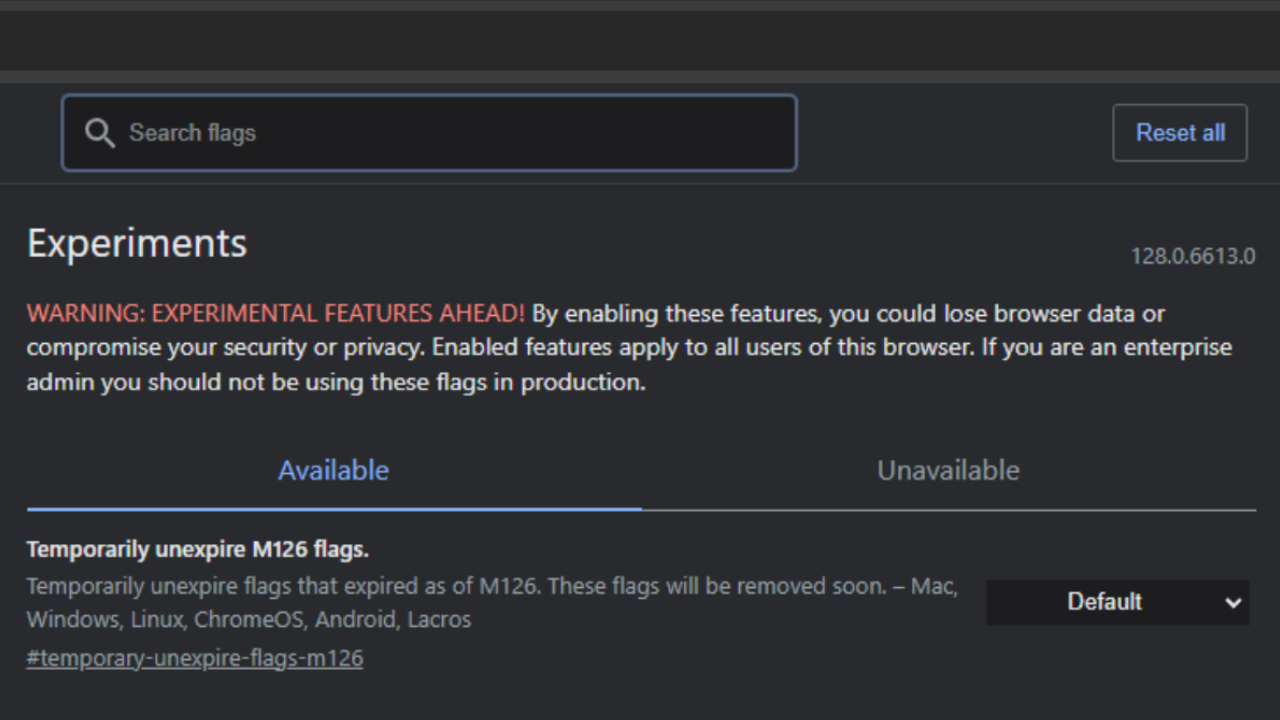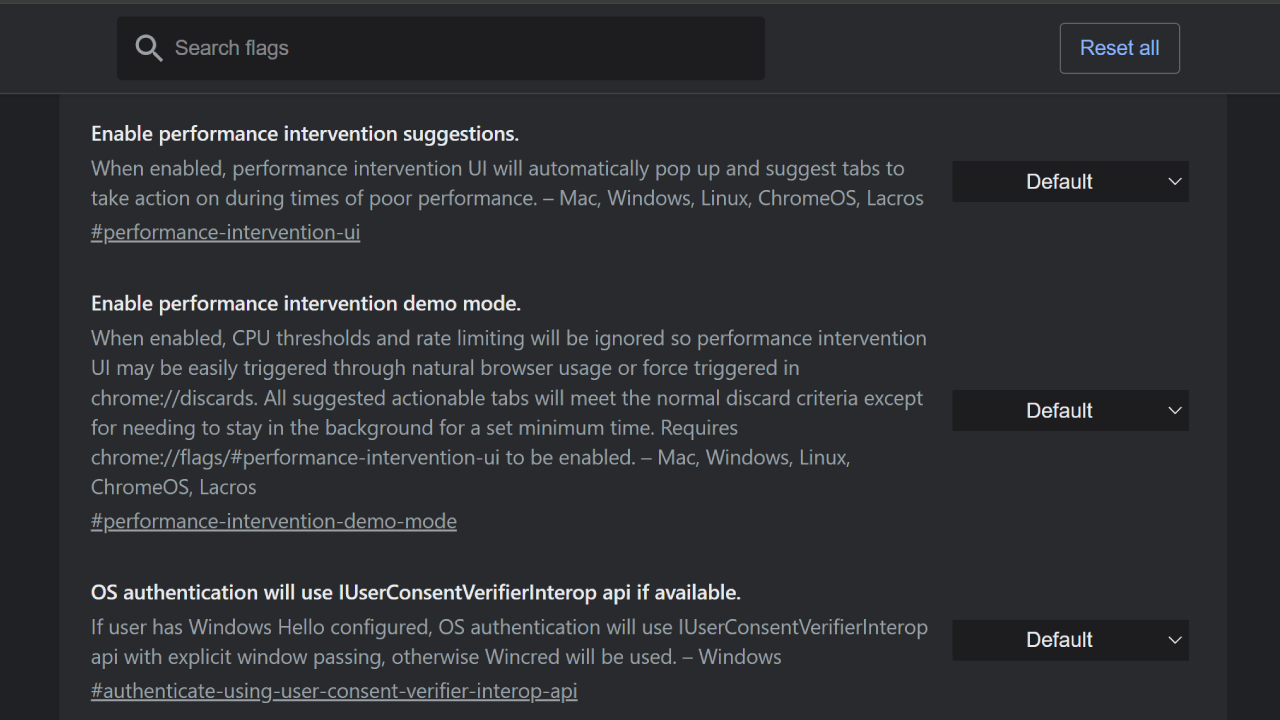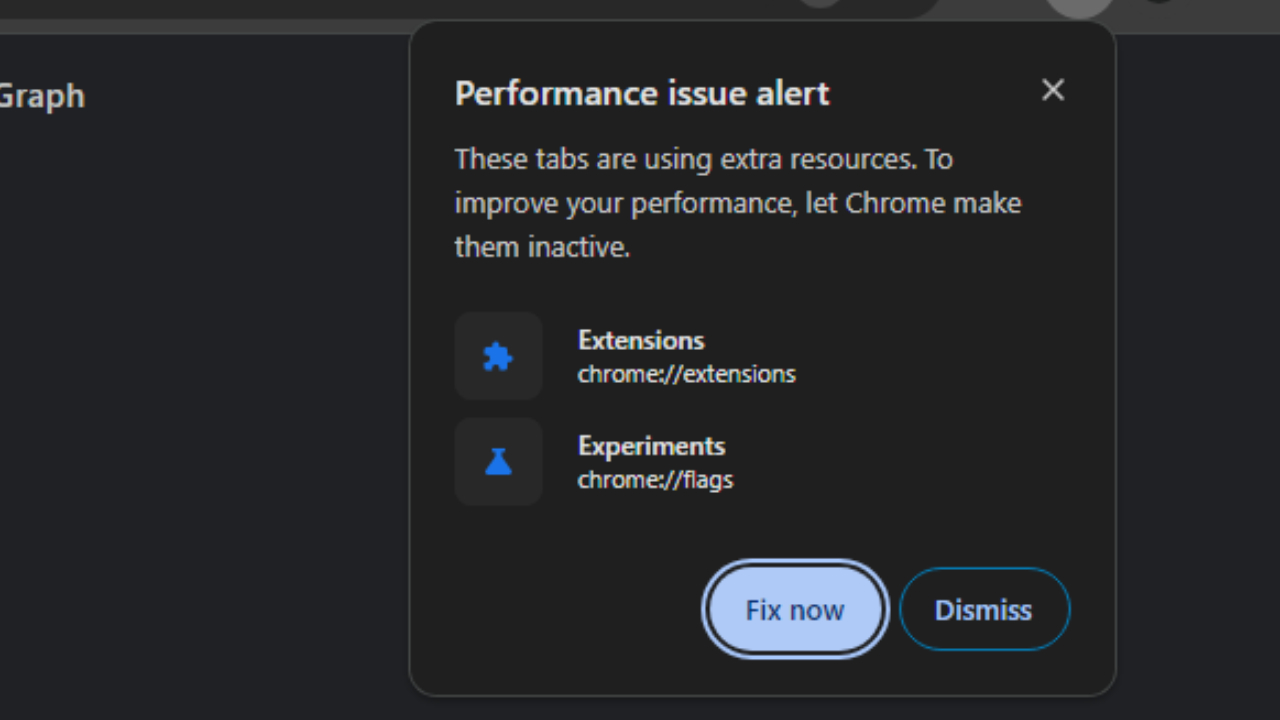Google Chrome update to address one of its biggest flaws — Here's how to get it early
You won't believe how much better Chrome is about to get

Google Chrome has been notoriously deemed incredibly demanding on hardware, but an upcoming update that's currently available on the developer version of Chrome could address this issue.
It's no secret that Chrome is by far the most popular browser option available, regardless of how hard Microsoft tries to shove Edge down our throats. In fact, it's not even close, with Backlinko highlighting that Chrome's 2024 market share is at 64.73%, whereas Edge is at a measly 4.97%.
But among all of Google Chrome's praise comes frequent criticism, whether it be around its privacy concerns, vulnerability issues, or problems with it simply being too demanding on CPU or RAM. In fact, our very own Rael Hornby stepped away from the browser, citing that it no longer "Feels all that lightweight and speedy" anymore.
However, it seems like Google is taking a page out of Opera GX's book, which features a resource management setting that provides a detailed breakdown on how much performance is being dedicated to each individual tab, whether it's involving RAM or CPU usage.
Chrome's implementation isn't completely identical to this, but it's similar in that it will help users get a greater understanding of where the application is consuming so much of your PC's power.
Chrome's upcoming feature changes everything
Google has yet to confirm when the update is coming to the public version of Chrome, but it's currently available within its experimental versions.
Yes, you no longer have to worry about Chrome absolutely destroying your computer with its RAM-hungry habits. This comes in the form of a new experimental flag present within Google Chrome Canary, which will give Chrome permission to warn the user if the application is sapping an extraordinary amount of processing power.
Sign up to receive The Snapshot, a free special dispatch from Laptop Mag, in your inbox.
But Chrome won't just warn the user by vaguely gesturing towards the overabundance of the CPU being used, and will instead highlight which tabs in particular are the culprit.
This is massive for anyone guilty of keeping a hundred tabs open at a time, some of which might be tearing your PC apart without you realizing it.
I've had situations where my computer will suddenly crash and require a forced restart, and I can only assume my dozens upon dozens of Chrome tabs are the culprit, although it probably doesn't help when I have other applications open alongside it.
Being warned that a particular tab is especially doing damage would address one of the biggest criticisms many users have been tossing at Chrome for years about its performance zapping behaviors.
How to activate it on Google Chrome Canary
If you've downloaded Google Chrome Canary and are looking for how to activate this new setting, here's what you do, as discovered by WindowsReport.
1. Type chrome://flags into Google Chrome Canary's address bar. Heed the cautionary statement at the top that says WARNING! EXPERIMENTAL FEATURES AHEAD!

2. Go down to Enable performance intervention suggestions and toggle it to Enable.

3. Right below it, do the same for Enable performance intervention demo mode.

4. You'll be prompted to relaunch Chrome. Do it!
And just like that, it's active. You can manually trigger the feature by going to chrome://discards and selecting Trigger Performance CPU intervention at the top, which will then make the little notification appear about which tabs are draining the most performance.
More from Laptop Mag
- Meta to unveil new smart glasses this year after Threads post outs its AR frames
- The Samsung Galaxy Ring may have new competition soon: Oura Ring 4
- I love the Ally X's new Armoury Crate, and so does my original ROG Ally — Here's how I set it up

Self-described art critic and unabashedly pretentious, Claire finds joy in impassioned ramblings about her closeness to video games. She has a bachelor’s degree in Journalism & Media Studies from Brooklyn College and five years of experience in entertainment journalism. Claire is a stalwart defender of the importance found in subjectivity and spends most days overwhelmed with excitement for the past, present and future of gaming. When she isn't writing or playing Dark Souls, she can be found eating chicken fettuccine alfredo and watching anime.









